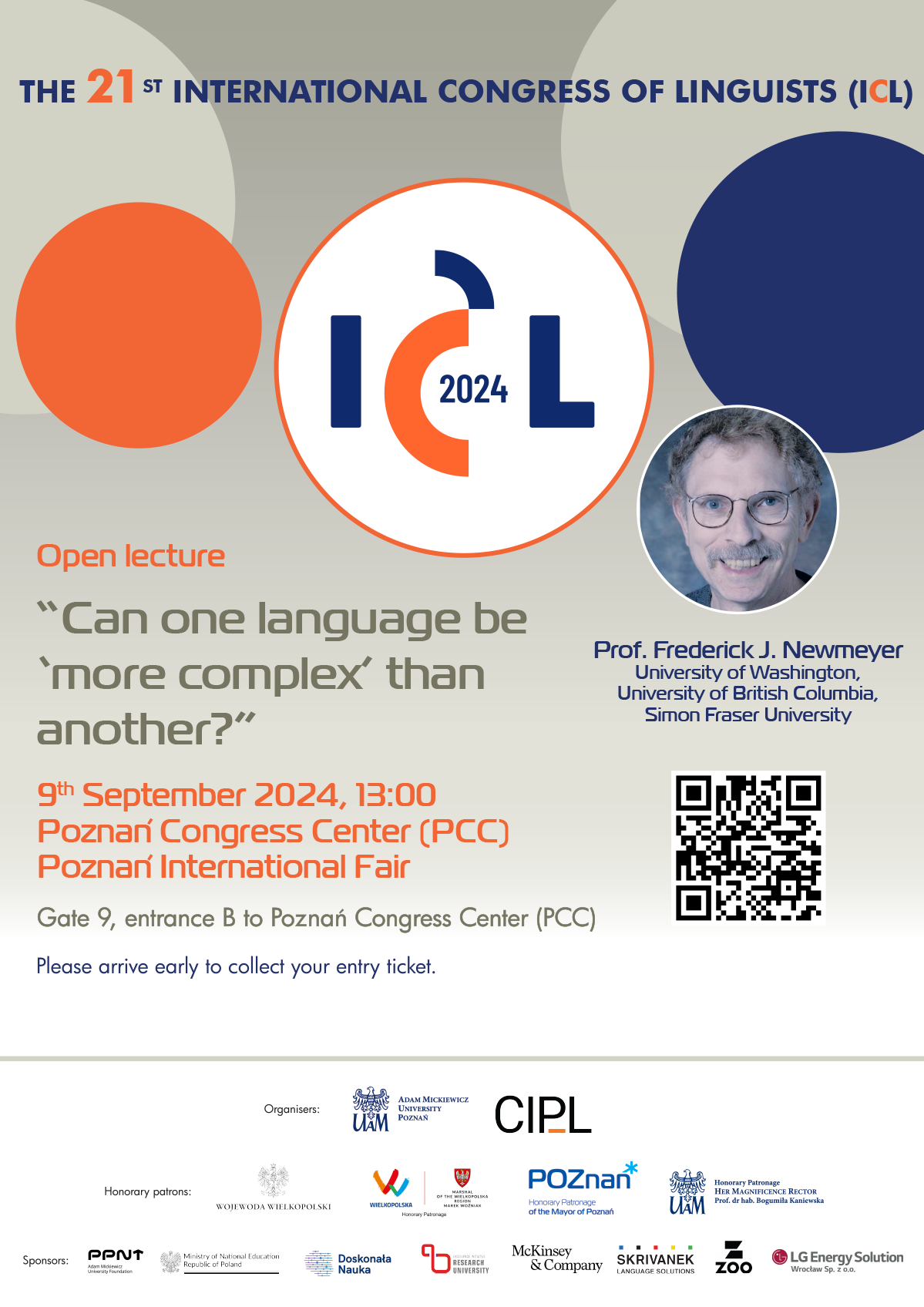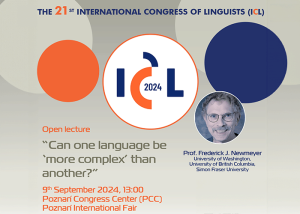The organizers of the 21st International Congress of Linguists (ICL), taking place in Poznań on 8–14 September 2024 cordially invite you to an open lecture by prof. Frederick J. Newmeyer (University of Washington, University of British Columbia, and Simon Fraser University).
“Can one language be ‘more complex’ than another?”
Time and venue: 9 September 2024 at 13:00 in the Earth Hall (Sala Ziemi) at the Poznań Congress Center (part of the Poznań International Fair grounds).
(Use Gate 9, Entrance B to Poznań Congress Center; please arrive early to collect your entry ticket.)
The lecture is part of the prestigious congress [external link] organized by Adam Mickiewicz University, Poznań in cooperation with the Permanent International Committee of Linguists (CIPL).
Abstract
It has long been an article of faith among linguists (though not among the general public) that all languages are equally complex. Three beliefs have led to this conclusion. First, the idea that languages might differ in complexity seems to go against enlightened humanistic thought: Asserting that one language is ‘simple’ and another ‘complex’ seems to open the door to the disturbing idea that some human societies are ‘more advanced’ or ‘more primitive’ than others. Second, there is at least some evidence that simplicity in one part of a language is balanced out by complexity in another part, leaving overall complexity the same from language to language. And third, one can interpret the theory of Universal Grammar as requiring that all languages be equal in complexity.
I argue in this talk that none of the three arguments, when examined carefully, are convincing. I devote some time to discussing how one might actually measure linguistic complexity and conclude with a discussion of the social and historical factors that might lead to one language manifesting more complexity than another.

abbreviated version in Polish (skrócona wersja w języku polskim)
